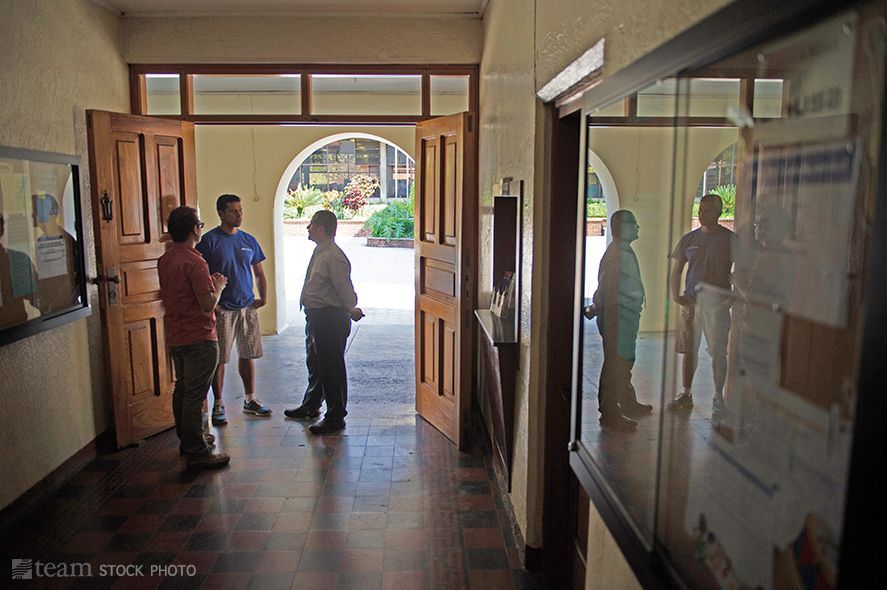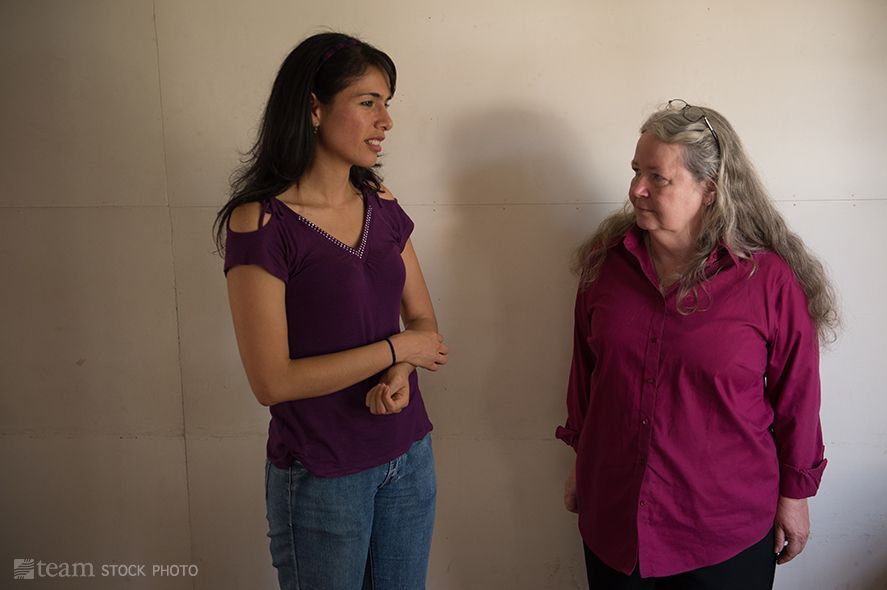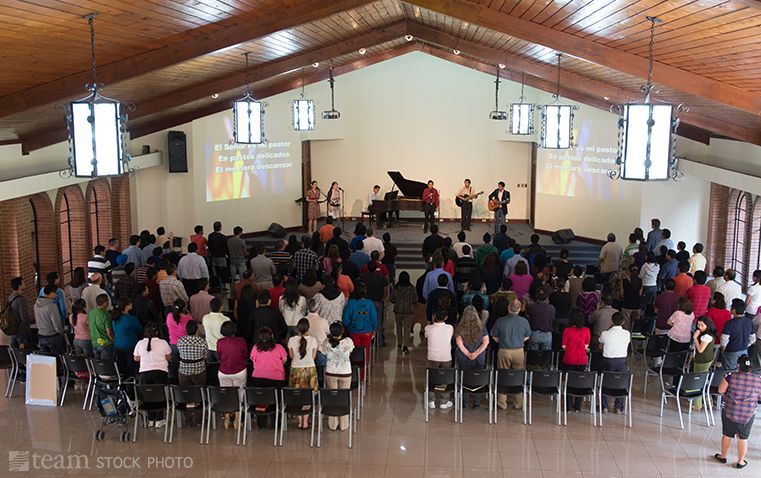I’m not sure if you know this, but you have a culture — and not all of it reflects God’s Kingdom values. Shocking, I know.
This may not be an entirely new idea to you, but let me push it a bit further. Not all of the cultural convictions that you think reflect God’s Kingdom values actually reflect God’s Kingdom values.
In other words, you and I have values we think are rooted in Gospel principles — but are actually, mostly, born from our cultures .
There is some irony here for missionaries because many are great at spotting this in their host cultures. We know how to pull apart anthropological dynamics and complexities to see real motivations. Yet, we fail to apply the same analysis to our own culture and worldview.
My Own Cultural Blindspot
Let me give you a brief example of this in practice. A few weeks back I broke down in front of our elder board, frustrated at how I was being perceived by others.
I was raised with Western values. I tend to speak directly, concerned with the accuracy of my words more than with tone or body language. I’ve assumed for years that one of the most loving things that I can do is tell people the truth . . . directly . As we say in Guatemala , speaking with no hairs on my tongue.
However, in Guatemala, where we have the privilege of serving as missionaries, communication is indirect. This means they focus on words and also non-verbal cues. They also consider the relational context in which the conversation happens.
A mother speaking to her son differs from an employee to their boss, which is different than two friends. Additionally, the time and trust built in each of those relationships gives greater freedom. To speak directly is a right that is earned after years of cultivating trust and friendship, and this right still should be used cautiously.

Conversation cues can vary widely from culture to culture, making it easy to cause offense without knowing it. Multicultural teams help steer us in better directions.
Since arriving in Guatemala people have insinuated that I am angry, intimidating and intense. Because I love them, I tell myself, I must speak the truth directly. As I do this, my face reddens and my body stiffens out of nervous anxiety. Blind to the proper way of addressing these conversations, I inevitably offend.
People have rightfully presumed under their cultural values that I must be angry at them. In reality, I’m nervously having a delicate conversation the wrong way, in an unfamiliar cross-cultural situation.
Of course God cares about the truth, in any culture. However, we easily cling to our cultural expression of telling the truth as the only way to do it .
How can we protect ourselves from this kind of cultural blindness? In my personal experience, the most fruitful way has been belonging to a multicultural team.
The Power of a Multicultural Team
When we start talking about our church planting team, it sounds like a bad set up to a culturally insensitive joke. A gringo, Costa Rican, Mexican, Dominican, a couple of Guatemalans and a British guy are sitting around a table. What I actually just described is staff meeting at our church in Guatemala.
Our church is located in Guatemala City. Five years ago, we helped plant Iglesia Reforma alongside brothers and sisters from various cultures . Together we have wrestled with cultural blindness, struggled to understand our host culture, challenged and been challenged on our own judgmental attitudes, all of which has resulted in a truly rich and dynamic church culture. One might even say it is quite Christian.
To this day, the cultural diversity that we have experienced in this process has been one of God’s gifts to my life. Below, I’d like to tell you why.
1. Diversity of perspectives and experience
Being on a multicultural team enriches our view of the world, relationships and ministry methods. What I might presume to be the only way to do something turns out to be one of many, and often not the best. Being surrounded by peers from other cultures who are empowered to confront me, and vice versa, has revealed my prejudice , sense of superiority and just how gringo I really am.

Working on multicultural church planting teams helps each member identify which of their views are cultural and which are truly biblical.
David Greenlee, Yong, Joong Cho and Abraham Thulare have written about this in Doing Member Care Well. They state,
Multicultural teams have a built-in, heightened sensitivity as to what is biblical and what is cultural about themselves. They help their members see themselves and the host culture from outside their individual cultures. Diverse cultural backgrounds provide perspective and help the team, as a unit, to respond appropriately, reducing the risk of unnecessarily giving or taking offense.
My brothers and sisters in Christ from other cultures have been extremely valuable in my sanctification. They have helped me identify weaknesses in my character that may have gone unchecked had I only surrounded myself with people from my own culture.
2. Creating a Gospel culture
On a multicultural team, often what is created is a third culture. This third culture is not primarily driven by the mingling and exclusion of each individual culture, but rather by a greater power that is at work in all of the team members — the Gospel. The gospel’s power working in us reveals and redeems the beauty of each individual culture, resulting in a beautiful tapestry honoring God’s creativity .
Tim Keller brilliantly summarized what this should look like in Center Church : “Christians are called to be an alternate city within every earthly city, an alternate human culture within every human culture.”
Throughout Scripture we are reminded that God’s people are pilgrims, whose citizenship is in heaven. This by no means flattens out our cultural nuances, but it gives us a footing for unity and integration in the midst of our diversity .
As we grow together in Christ, we are shaped more and more by the cross of Christ and less and less by our own cultural predispositions. Each of our cultures naturally embrace certain attitudes and actions that are contrary to the Gospel’s work. If we live in a cultural echo chamber, we lose the opportunity to identify those areas that our culture may value, but the Kingdom of Christ rejects.
3. Reflecting God’s design for His people

God’s Church is multicultural by design, and our individual church planting teams should reflect that reality.
As I mentioned previously, God’s people are not identified first and foremost by their national or ethnic culture, but rather by their belonging to God’s kingdom. God’s plan from the very beginning has been to gather a people for Himself from every tribe, tongue and nation. Many of us celebrate how the final scene in God’s Word shows the worship and adoration of Christ by a people who are gathered precisely from every tribe, tongue, and nation. Multicultural teams provide a shadow of this future vision .
To quote Greenlee, Joong, and Thulare again, “Multicultural teams can model the diversity of the body of Christ in microcosm better than monocultural teams. A monocultural team does not readily demonstrate the international nature of Christianity.”
4. Bearing witness to the Gospel’s power
When cultural values or expressions are placed at the center of any community, we inevitably end up excluding those who do not embrace them, ultimately leading to greater conflict, hurt and bitterness. It is only when Christ, head of the global Church, is at the center, that we are able to truly experience unity in the midst of diversity .
Paul makes it clear in passages like Ephesians 2 and Galatians 3 that the only hope for true unity in the Church, despite what historic or cultural differences may exist, is by the cross of Christ. He is our peace and has purchased our peace. We have been reconciled to the Father, and despite enormous differences, we now belong to His family.
So We Become Like Him
The matter of fact truth is that I need brothers and sisters from other cultures so that I might become more like Jesus. I need what they see and value as much as they need what I see and value. Multicultural teams are more than a trend that is necessary to follow; they are a manifestation of God’s work transforming His people into more complete and fruitful representatives of His Gospel and His kingdom.





















